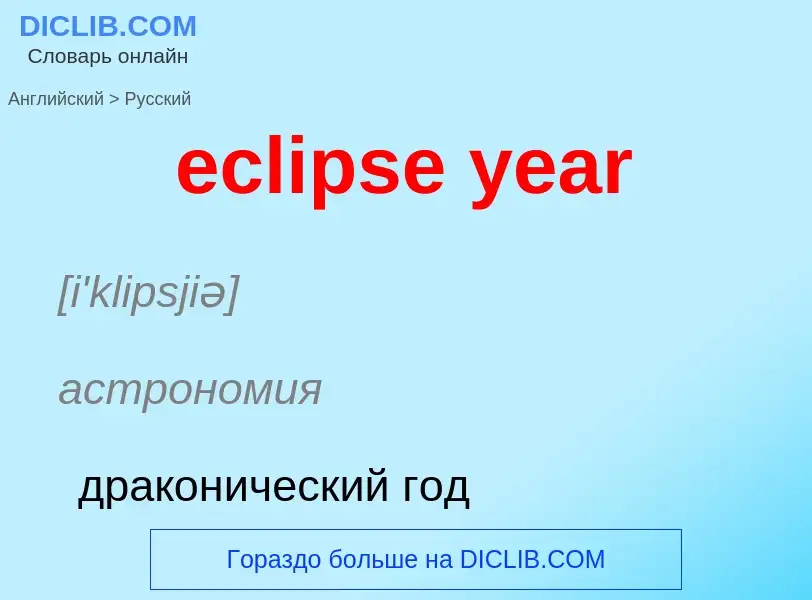Translation and analysis of words by ChatGPT artificial intelligence
On this page you can get a detailed analysis of a word or phrase, produced by the best artificial intelligence technology to date:
- how the word is used
- frequency of use
- it is used more often in oral or written speech
- word translation options
- usage examples (several phrases with translation)
- etymology
eclipse year - translation to russian
[i'klipsjiə]
астрономия
драконический год
Definition
Wikipedia

A year is the orbital period of a planetary body, for example, the Earth, moving in its orbit around the Sun. Due to the Earth's axial tilt, the course of a year sees the passing of the seasons, marked by change in weather, the hours of daylight, and, consequently, vegetation and soil fertility. In temperate and subpolar regions around the planet, four seasons are generally recognized: spring, summer, autumn and winter. In tropical and subtropical regions, several geographical sectors do not present defined seasons; but in the seasonal tropics, the annual wet and dry seasons are recognized and tracked.
A calendar year is an approximation of the number of days of the Earth's orbital period, as counted in a given calendar. The Gregorian calendar, or modern calendar, presents its calendar year to be either a common year of 365 days or a leap year of 366 days, as do the Julian calendars. For the Gregorian calendar, the average length of the calendar year (the mean year) across the complete leap cycle of 400 years is 365.2425 days (97 out of 400 years are leap years).
In English, the unit of time for year is commonly abbreviated as "y" or "yr". The symbol "a" is more common in scientific literature, though its exact duration may be inconsistent. In astronomy, the Julian year is a unit of time defined as 365.25 days of exactly 86,400 seconds (SI base unit), totalling exactly 31,557,600 seconds in the Julian astronomical year.
The word year is also used for periods loosely associated with, but not identical to, the calendar or astronomical year, such as the seasonal year, the fiscal year, the academic year, etc. Similarly, year can mean the orbital period of any planet; for example, a Martian year and a Venusian year refer to the time those planets take to transit one complete orbit. The term can also be used in reference to any long period or cycle, such as the Great Year.



.jpg?width=200)
